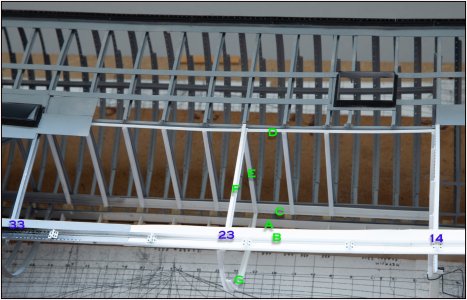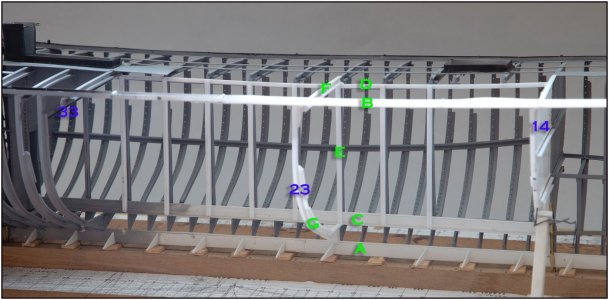After placing frames 19, 23 and 29 I could make the bilge stringer.
As explained when making the starboard side, this has a double curve. One following the hull line and one with the ends running upwards.
The latter depends on the shape of the outside of the frames, because the bilge stringer is between the 5th and 6th barrel:
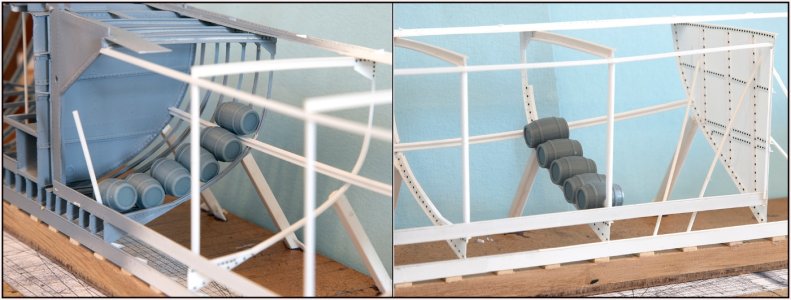
At the largest width of the hull the frame is flatter at the bottom. Further back the frames become increasingly slanted. The distance projected over that shape between the 5th and 6th ton must be the same everywhere.
After fitting, measuring and bending into shape I could apply it:
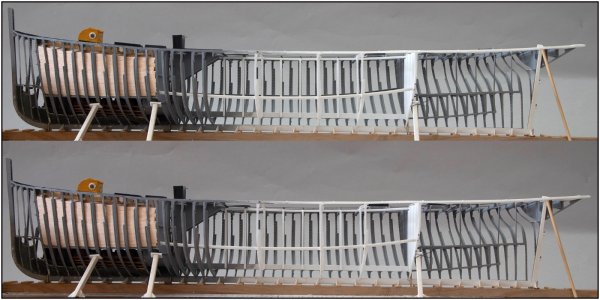
I photographed the model twice, with a small position shift.
In the top photo the grey starboard bilge stringer is just above the white one on the port side. In the bottom photo he has almost completely disappeared behind it. The shape of both is almost the same.
It is also now very fun to play with the different curves in terms of photography:
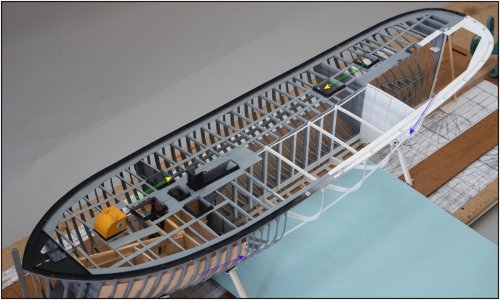
Between the 2 blue arrows the 'white' port side bilge stringer with its hull shape curve.
I have chosen the angle of the photography in such a way that the 'grey' bilge stringer on the starboard side only shows a very small curve. It runs between the 2 yellow arrows. It has now the same little curve as the stringers on which the hatches are placed for access to the barrel holds. Those stringers only have the deck curve (sheer).
That shows once again that they thought a lot about their placement in the past. They have a double curve but still a kind of straight line to distribute the forces over the hull.
Regards, Peter

 .
.


